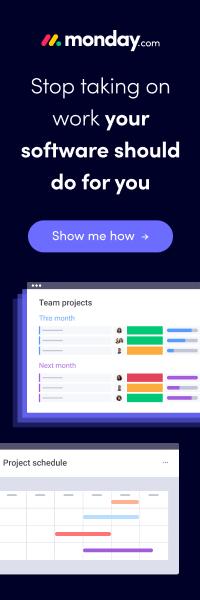One of the first things you may want to know if you’re toying with the idea of using enterprise resource planning (ERP) software is how your business stands to benefit from doing so. An ERP acts as a company-wide database, allowing for powerful reporting capabilities and a wide variety of methods to boost production while decreasing expenses.
These are just a few of the compelling reasons to invest in ERP, but we’re here to help you grasp what this technology can accomplish for your company. In this post, we’ll look at 5 key advantages of implementing ERP software in your business.
Protection of Company Data
The biggest advantage of ERP software is the protection of company data. Data has become a valuable asset for organizations since it is crucial to make the best decisions possible, and ERP software can assist secure that asset. Because all this information is stored in one location, rather than being dispersed across several systems, it is more secure.
It replaces many Excel documents and other files that were previously being sent and stored on employees’ computers. To prevent data loss in the event of a server failure, cloud ERP software will often store your files on many servers in different locations. This is especially important if your business deals with private client information.
Data Centralization and Standardization
ERP’s usefulness stems mostly from the centralized database it creates, where data can be accessed and analyzed by any user within the organization. Without this kind of software, a business’s data is usually spread out across many apps and spreadsheets, making it harder for employees to find what they need. This method also often generates duplicate data in incompatible formats.
All of your crucial data may be standardized with the assistance of ERP software, which can also aid in this process. Since everything is contained inside the same system, there won’t be any discrepancies when generating reports or doing analyses.
Compliance
If your company is required to conform to any rules, having accurate, up-to-date records that are simple to discover and the search will greatly decrease the effort necessary to do so. The system comes with customizable reporting features that make it significantly simpler to monitor compliance and introduce necessary changes. This makes you far more auditable since all the information an auditor could need to evaluate your operations is conveniently available.
Financial standards like GAAP and legislation like the Sarbanes-Oxley Act (SOX) may be supported by some ERP software. If you want to stay in compliance with these rules, you need software that can adapt to new versions of the regulations as they are introduced. ERP makes it much easier to stay compliant, which is particularly important in highly regulated industries.
Productivity Boost
There are various ways ERP software may deliver a substantial boost to productivity. One approach is that it eliminates the need for humans to do routine chores, allowing them to focus on higher-value initiatives instead. It may also assist individuals to do a range of jobs quicker by making processes clear and decreasing the time spent looking for the information they need. Since everyone in the company can see everything going on, nobody needs to track down a particular piece of information or explain a complicated procedure.
Because of the ERP software’s increased efficiency, you won’t need to hire as many new employees. It frees up workers’ time to take on more challenging assignments and engage in initiatives that make better use of their unique sets of talents and experience.
Scalability
The best part about modern ERP software is that it allows you to start small and grow as your business does. As a result, the software can adapt to the changing needs of your company as it expands. As your team expands, you may easily add additional users. There’s no need to buy a new ERP solution simply because your company has evolved since you established the previous software.
A cloud ERP solution will give your company the most flexibility to meet its goals for quick growth. Since cloud solutions are stored on distant servers, it is simple to add the extra resources required to maintain its seamless operation. That decreases the effort imposed on IT and potentially removes the need to engage a staff of technical specialists.
Final Thoughts
Introducing an ERP into your business will take some time, but it comes with numerous benefits. Employees will need proper training on the new program in addition to the financial investment. Although ERP software may give immediate improvements to work operations, the power of ERPs rests in the long-term effects that they can create. However, as the adage goes, patience is a virtue.
















